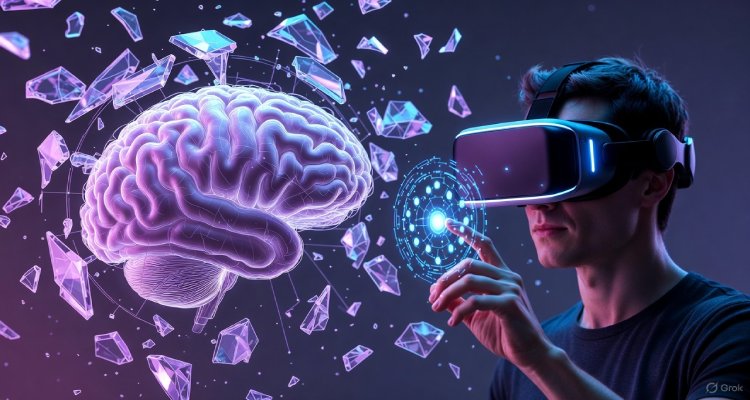The Age of Manufactured Memories

In an era where technology can alter, enhance, or create memories, society faces new psychological, ethical, and cultural challenges. Welcome to the age of manufactured memories.
Introduction: A New Frontier of Human Experience
On a quiet Tuesday morning in Manhattan, a tech executive recalls a childhood trip to Yellowstone—vivid colors, the scent of pine, the thrill of wildlife. The catch? She never went. The memory was part of an experimental therapeutic simulation, a digital imprint crafted to replace a traumatic event.
This is no longer science fiction. We are entering the Age of Manufactured Memories, where technology doesn’t just store memories—it can shape, rewrite, and even fabricate them.
Context & Background: From Memory Study to Memory Engineering
For decades, neuroscientists have known how fragile human memory can be. Researchers discovered that every time a memory is recalled, it is subtly rewritten. This natural reconstruction formed the basis of early therapeutic techniques for trauma, but technology has expanded the possibilities far beyond therapy rooms.
From virtual reality rehabilitation experiments to AI-powered cognitive tools, the field has progressed rapidly:
- VR therapy now helps PTSD patients rewrite painful memories by overlaying calming experiences.
- Neural implants in trials restore partial memory function for patients with degenerative conditions.
- AI-generated life archives allow people to “relive” altered versions of their past through immersive simulations.
These shifts mark a turning point—not just in psychology, but in how humans understand identity itself.
Main Developments: The Rise of Memory Manipulation Technologies
Across Silicon Valley, neuroscience labs and tech startups are racing to build tools that can modify the substrate of memory. Three major developments have defined this shift:
a. Experiential Reconstruction Platforms
Companies are offering “emotional editing” services, where individuals can soften painful experiences or enhance joyful ones using controlled sensory simulations. Some services even insert supportive characters—a kind teacher, a brave version of oneself—to alter emotional outcomes.
b. AI-Enhanced Recall and Nostalgia Engines
AI systems can now compile fragmented personal data—photos, social posts, old emails—and generate “continuity memories.” These synthetic memories fill gaps in people’s recollections, creating the illusion of a seamless past.
c. Therapeutic Memory Replacement
Clinical trials are exploring memory substitution for severe trauma survivors. Using sensory-rich VR and guided neurofeedback, patients replace harmful memories with emotionally neutral equivalents. While still experimental, early trials show significant psychological relief.
Why this matters: memory is the backbone of identity. When it becomes editable, the boundaries between truth and narrative blur.
Expert Insight & Public Reaction
Scientists, ethicists, and psychologists are divided.
Dr. Lena Ortiz, a cognitive neuroscientist at the fictional American Institute for Neural Studies, says the technology could save lives:
“Trauma rewires the brain in destructive ways. If we can safely reshape those neural pathways, we can restore dignity and functionality.”
But others warn of a slippery slope.
Professor Howard Kim, an ethicist specializing in digital autonomy, cautions:
“Once memories become commodities, they become vulnerable to misuse—by corporations, governments, or even individuals seeking emotional convenience over truth.”
Public opinion mirrors this split. Social media circles call the trend “life-changing,” “terrifying,” or “the next cosmetic surgery.” Parents worry about children growing up with curated pasts. Some young adults see manufactured memories as a path to personal reinvention.
The debate is no longer scientific—it’s cultural.
Impact & Implications: A Future Built on Editable Pasts
a. Identity and Authenticity
If memories can be altered, what defines a person? Critics argue that synthetic memories may create emotional dependence on curated experiences, weakening a sense of self.
b. Legal and Ethical Complexities
Courts rely on witness testimony, which is already imperfect. Now, legal systems may face an era where even authenticated memories can be manipulated.
c. Commercialization of Memory
Imagine companies selling “premium childhoods,” “confidence-boosting memories,” or “relationship rewrites.” The socioeconomic gap could deepen—not just in wealth, but in psychological wellbeing.
d. Therapeutic Breakthroughs
Despite risks, the technology holds immense promise:
- Safer recovery for trauma survivors
- Cognitive repair for Alzheimer’s and brain injuries
- Emotional stabilization for anxiety and depression
In the right hands, manufactured memories could spark a mental-health revolution.
Conclusion: Moving Forward into the Unwritten Past
The Age of Manufactured Memories is not science fiction—it’s the next chapter of human evolution. As technology gains the power to alter the stories we tell ourselves, society must decide what is worth remembering, what deserves healing, and what should remain untouched.
In the end, the question isn’t whether memories can be manufactured.
It’s whether we are ready to live with the consequences.
Disclaimer :This article is for informational and educational purposes only. It does not provide medical, legal, or psychological advice. Readers should consult qualified professionals for guidance related to memory therapy, mental health treatment, or neurotechnology.










